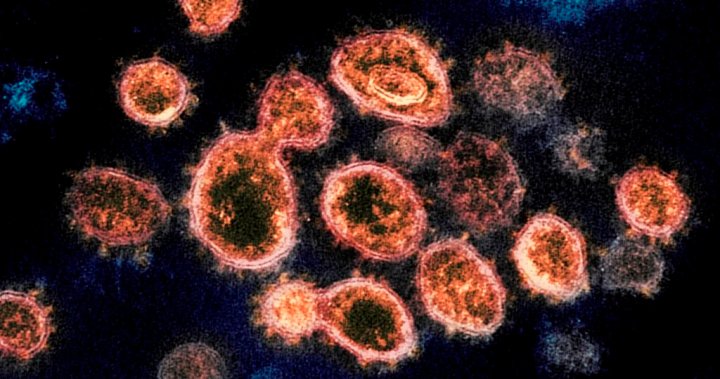The World Health Organization has classified the COVID-19 variant JN.1 as a separate variant of interest from the parent lineage BA.2.86 due to its rapidly increasing spread.
The WHO made the announcement Tuesday, saying that based on current evidence, the global health risk posed by JN.1 remains low.
“Despite this, with the onset of winter in the Northern Hemisphere, JN.1 could increase the burden of respiratory infections in many countries,” the WHO said in a statement.
Get the latest Health IQ news.
Sent to your email, every week.
The health organization added it is continuously monitoring the evidence and will update the JN.1 risk evaluation as needed.
Although JN.1 is now a variant of interest, the WHO said current vaccines continue to protect against severe disease and death in this variant, as others that are circulating.
In Canada, JN.1 falls under the variant BA.2.86, which is an Omicron subvariant of SARS-CoV-2. Its prevalence has been steadily increasing since October, when it made up 0.1 per cent of the variants at the time.
According to the Public Health Agency of Canada (PHAC), as of December 10, it now accounts for 27.4 per cent of COVID-19 variants.
In a statement to Global News, a spokesperson for PHAC called JN.1 “the most established BA.2.86 sub-lineage globally and in Canada.”
“Continued monitoring and evaluation is taking place to determine if JN.1 requires further reclassification to a variant of interest in Canada,” the statement said.
—With files from Global’s Sean Boynton
© 2023 Global News, a division of Corus Entertainment Inc.










